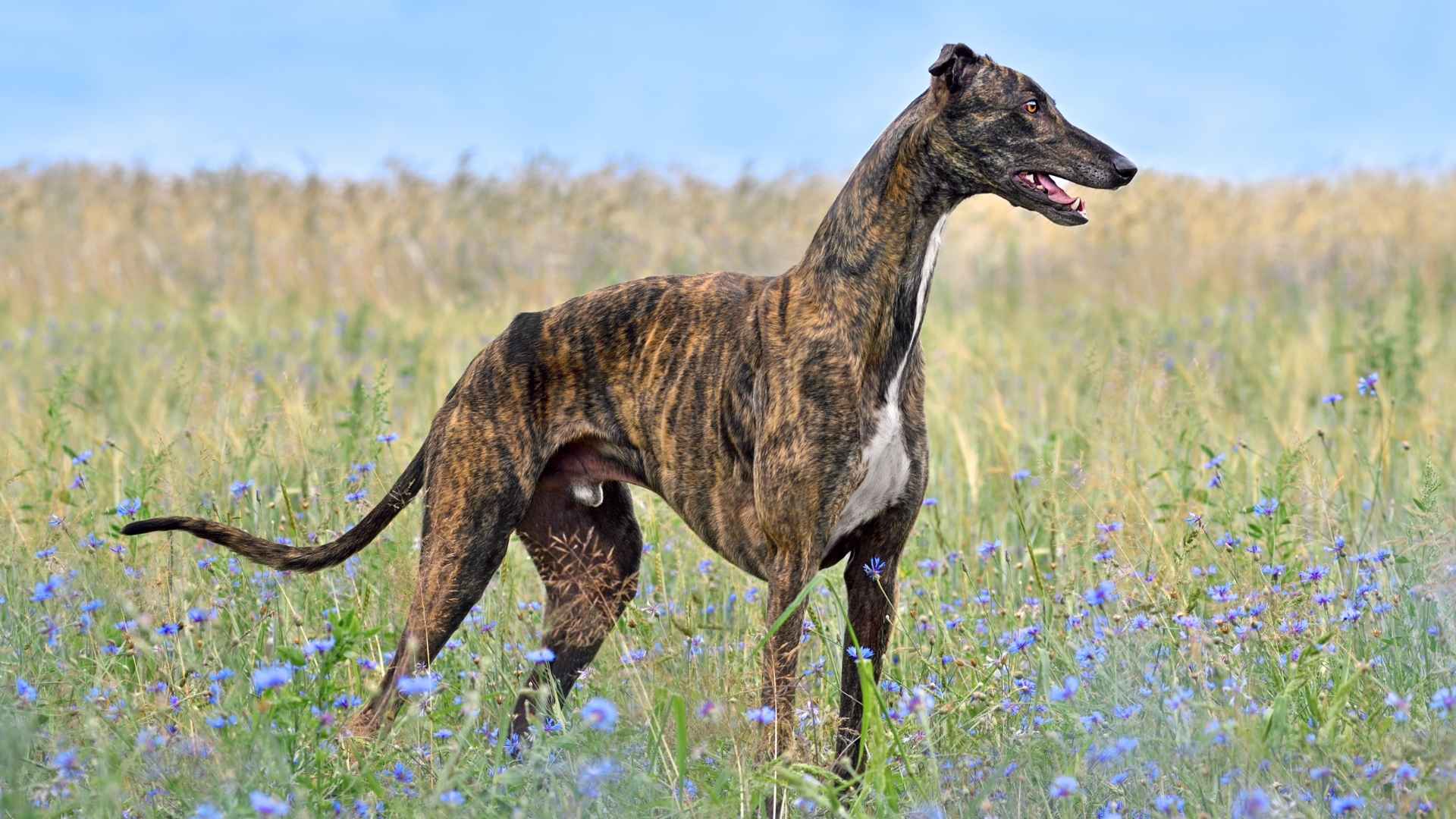Aloof and reserved dog breeds have a unique charm that sets them apart from the more affectionate, eager-to-please pups. These dogs, with their independent nature and calm demeanor, tend to keep to themselves, offering companionship without constant attention or demands.
They are not the type to follow you around seeking affection, but rather prefer to enjoy their own space and time with their close family members. For dog owners seeking a companion with a strong, confident personality, these breeds provide a sense of calm assurance.
If you appreciate independent dogs that thrive on their own terms and add a touch of mystery, aloof and reserved dog breeds could be the perfect fit for your lifestyle.
Aloof and Reserved Dog Breeds
1. Chow Chow
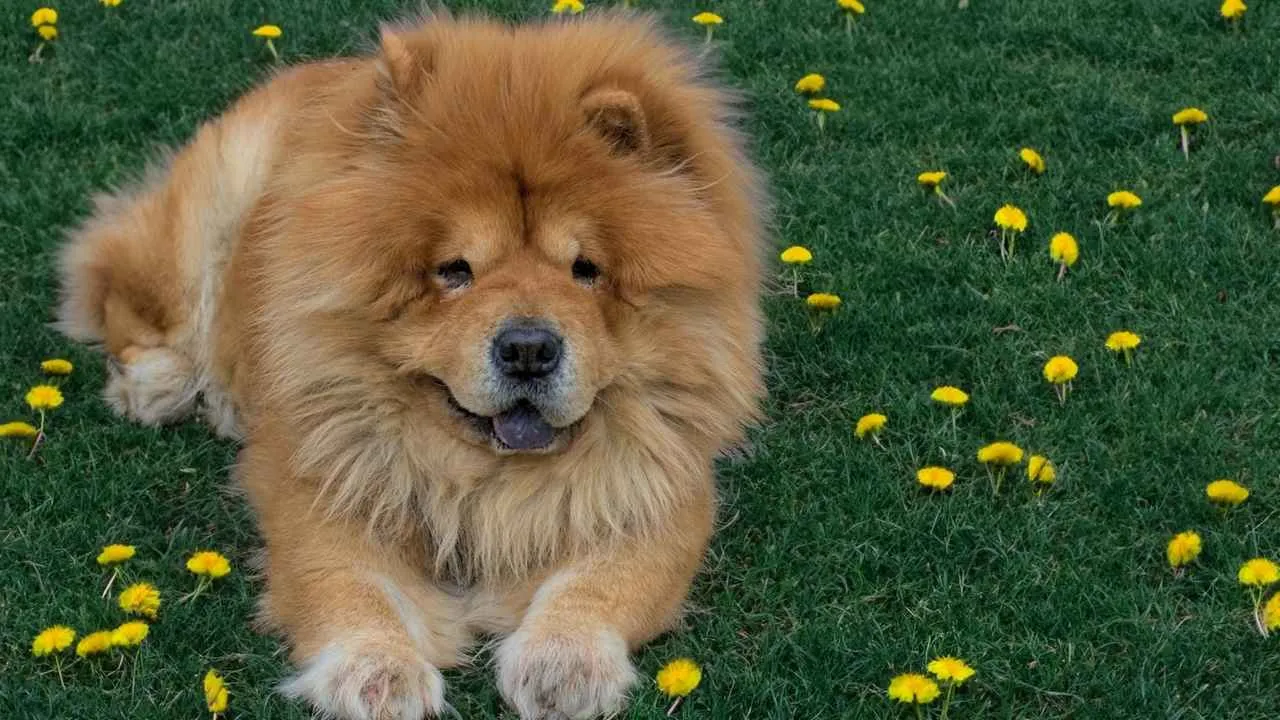
The Chow Chow is an ancient breed from China, known for its distinctive lion-like mane and blue-black tongue. This breed is often seen as aloof and independent, preferring to keep a distance from strangers.
Despite their reserved nature, Chow Chows form strong bonds with their close family members, making them deeply loyal companions. They require early socialization to avoid becoming overly territorial or standoffish with outsiders.
Chow Chows are medium to large dogs with a dense, double-layered coat that requires regular grooming. Their independent personality means they may not always seek out attention or affection, but they will protect their family fiercely.
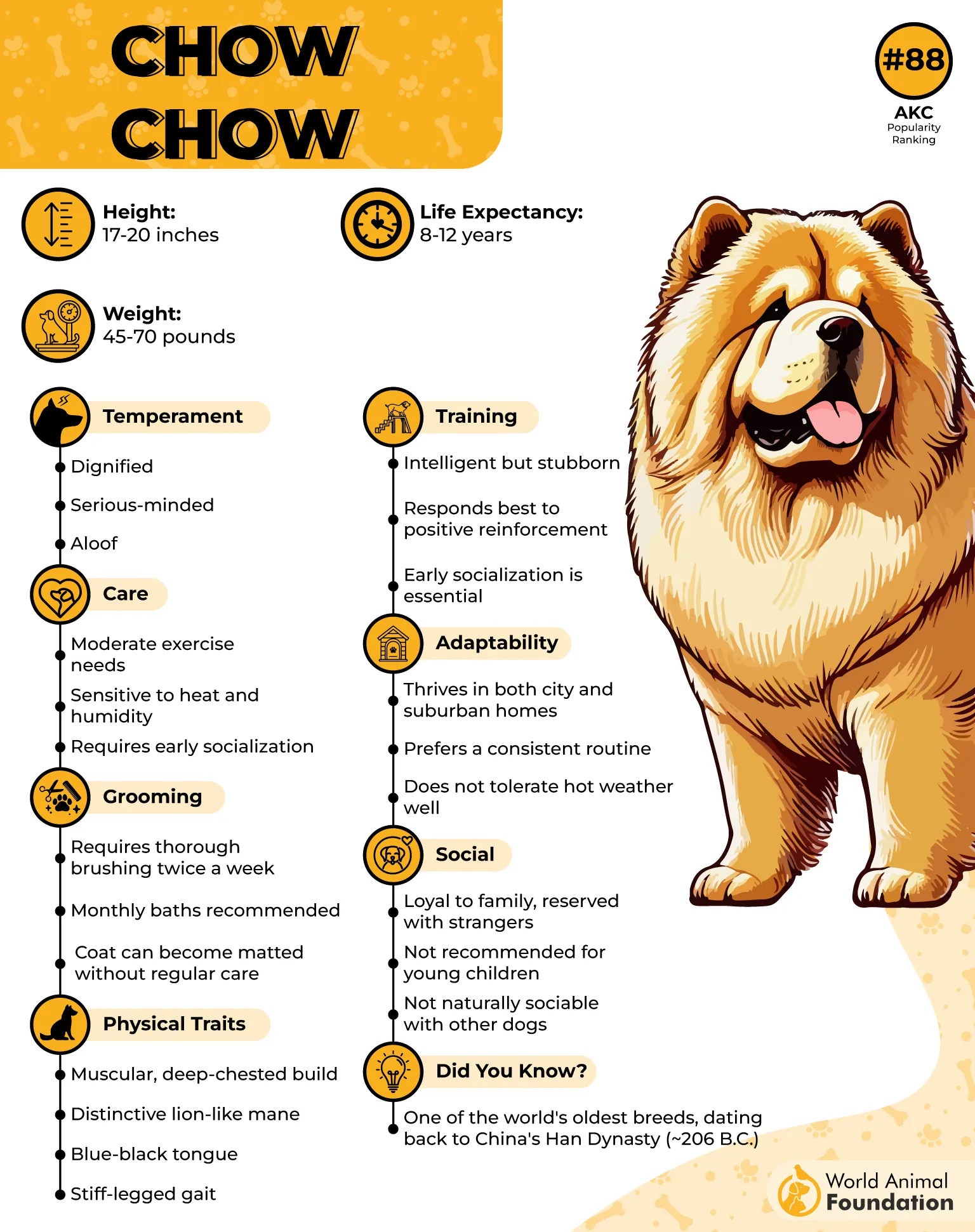
This breed is not overly playful but is a gentle companion, content to lounge around the house or enjoy a leisurely walk. Chow Chows are best suited for families that appreciate their calm, dignified temperament.
Training a Chow Chow can be challenging due to their stubborn nature, but with patience and consistency, they can be taught basic commands. These dogs are not known for being overly energetic and thrive in homes where they have space to roam and a routine to follow. Chow Chows may not get along well with other dogs, so careful introductions are necessary.
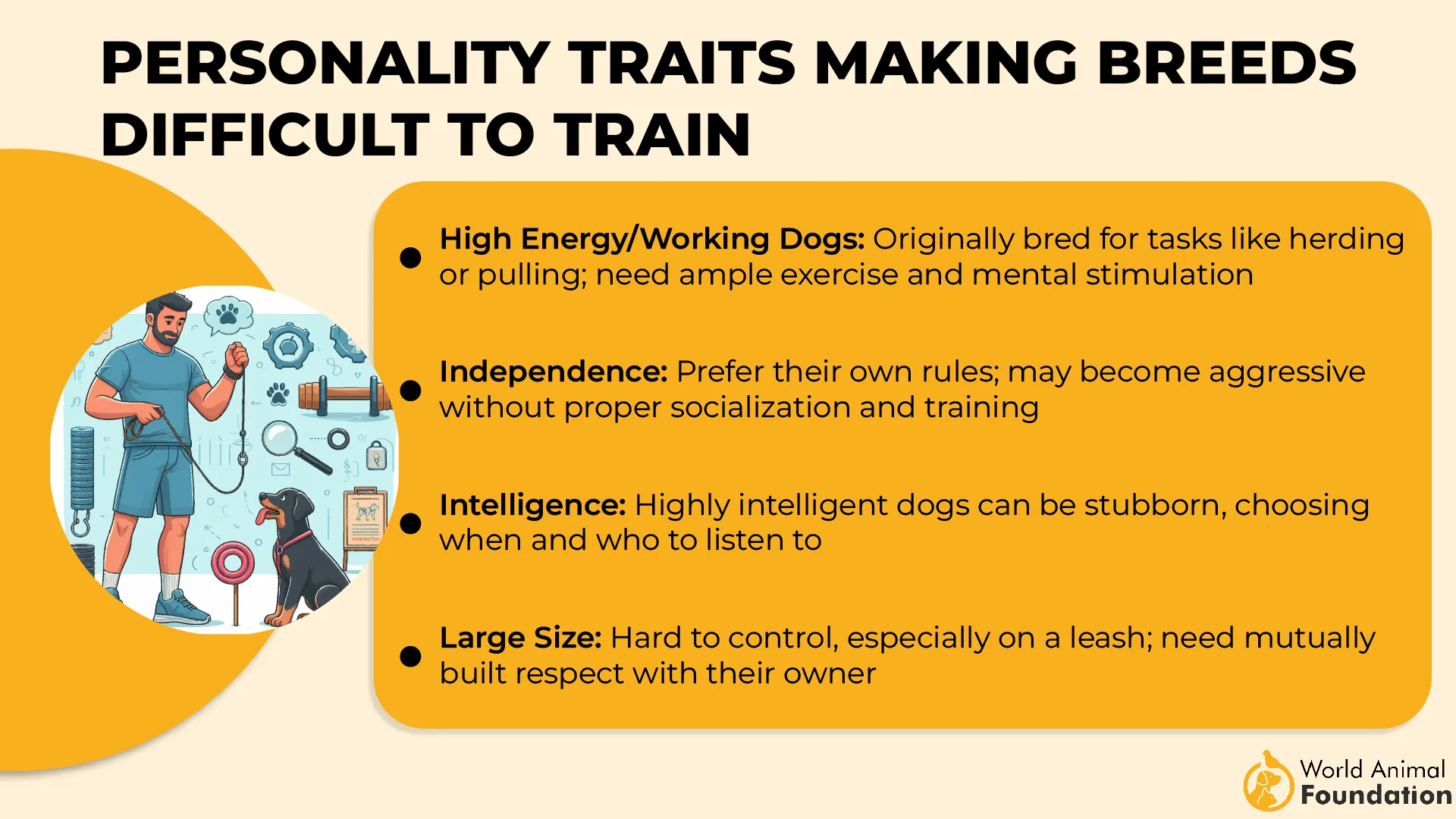
Fun Fact: The Chow Chow’s distinctive blue-black tongue is one of the most unique features among dog breeds. It’s thought to be a result of ancient crossbreeding with wild dogs. This breed is also one of the few that have been used as guard dogs in China for centuries.
2. Shiba Inu
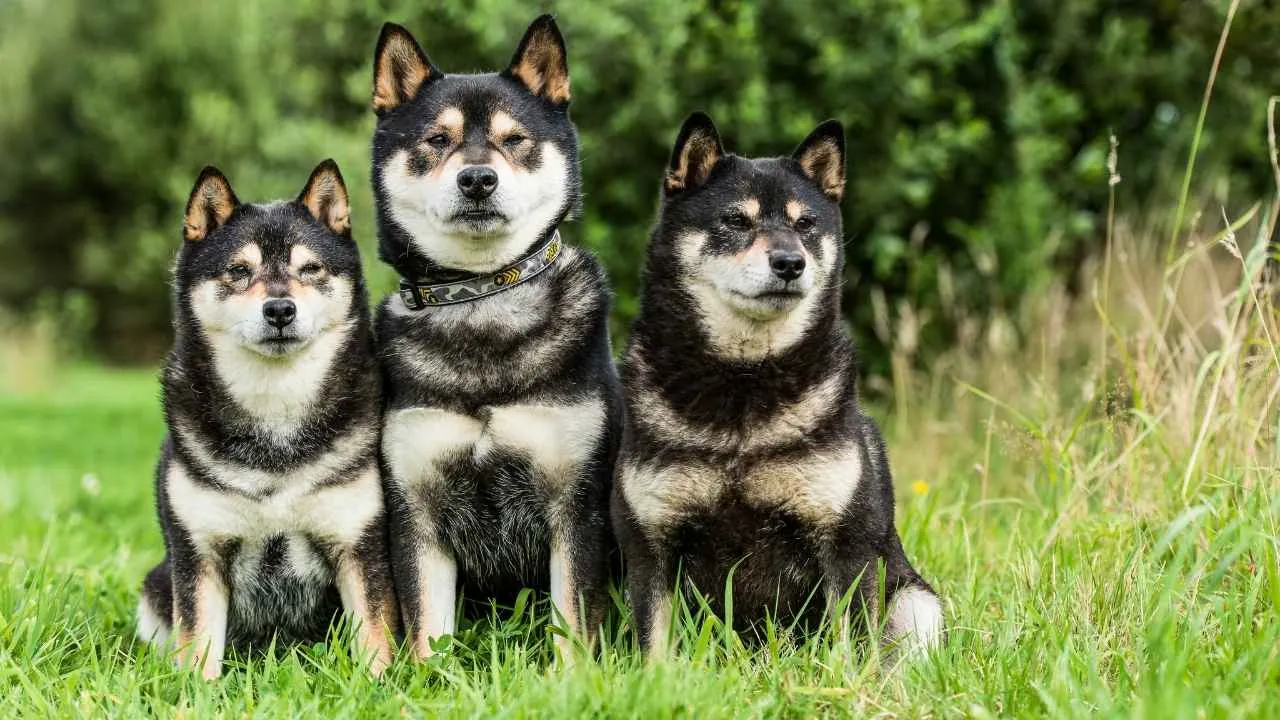
Shiba Inus are a small-to-medium-sized Japanese breed known for their fox-like appearance and independent mindset. While they are loyal to their families, they are typically reserved with strangers.
Shibas have a strong-willed personality, and their aloofness often makes them seem more like cats than dogs. Their independence means they may not always seek attention or affection, but they are still very connected to their owners.
Originally bred for hunting, Shiba Inus are intelligent and agile dogs. They have a strong prey drive and may be difficult to train because they tend to think for themselves. Despite their reserved nature, Shibas are often playful with their close family members and can have a spirited side when given the right environment and routine.
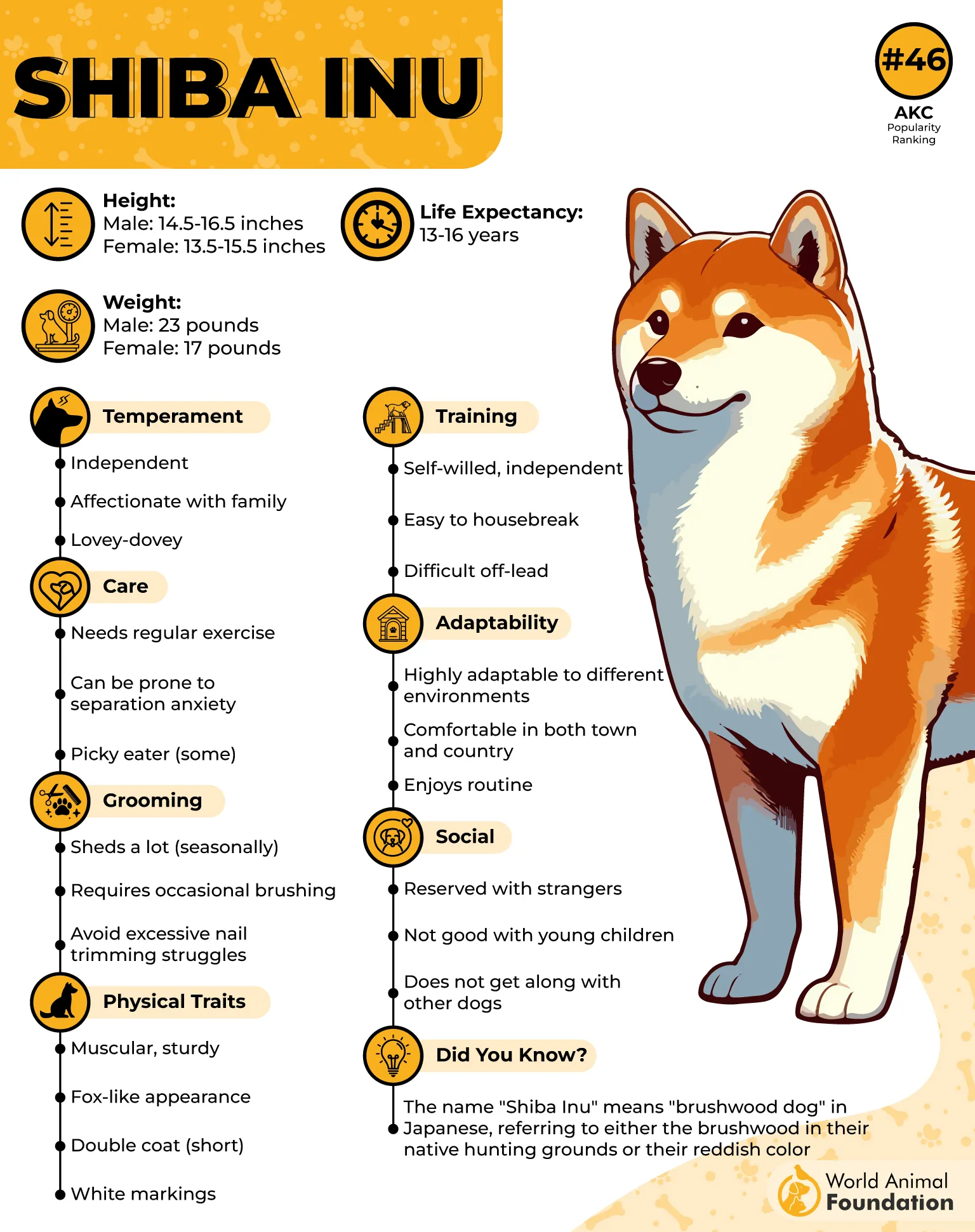
One of the most defining characteristics of the Shiba Inu is its distinct “Shiba scream,” a high-pitched sound they make when frustrated.
This breed can be a bit of a challenge for first-time dog owners due to their independent nature and need for consistent training. They are not known for being overly social with other dogs, but with proper introductions, they can coexist peacefully.
Fun Fact: The Shiba Inu is the smallest of the Japanese spitz breeds and was originally bred to flush out birds and small game. Despite their small size, they are known for being very bold and confident.
3. Akita
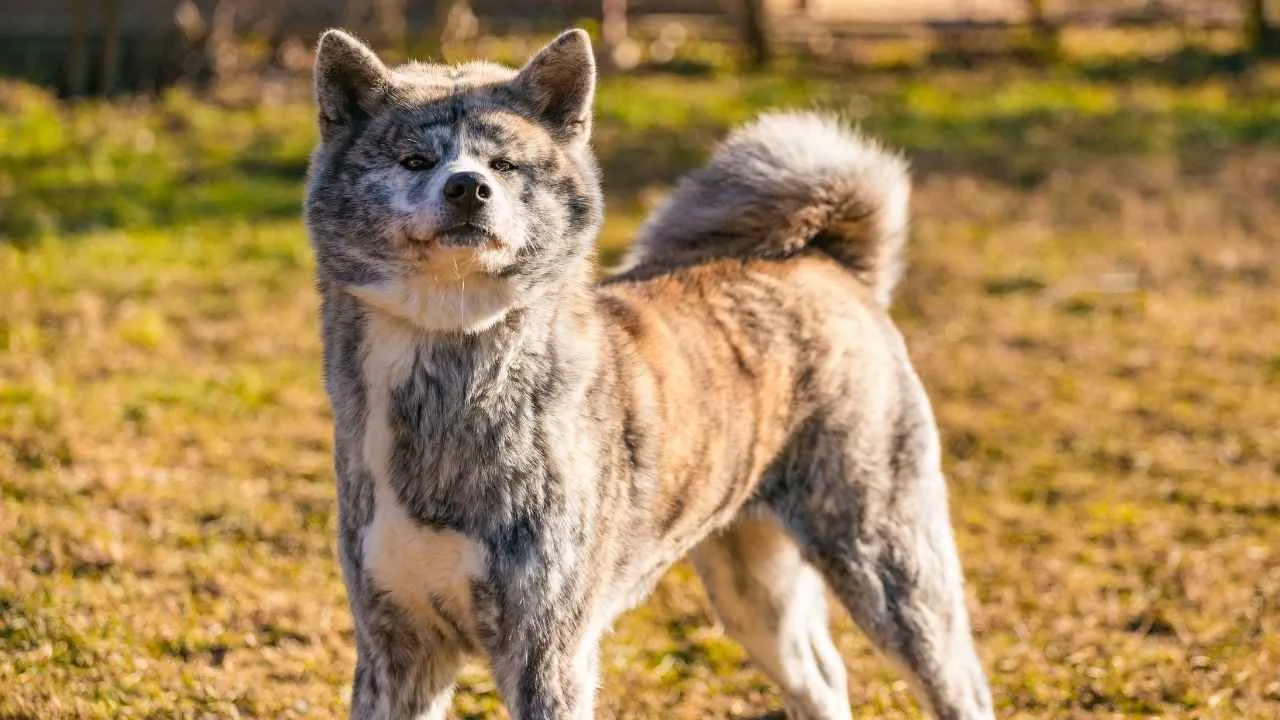
Akitas are a large, powerful breed originally from Japan, known for their loyalty and aloof demeanor. These dogs are typically reserved with strangers and can be quite protective of their family.
While they form strong bonds with their owners, Akitas are often independent and prefer to do things on their own terms. Their reserved nature makes them excellent watchdogs, but it also means they require consistent socialization from an early age to avoid territorial behaviors.
Akitas are strong-willed dogs with a deep sense of loyalty. They are not known for being overly affectionate, but they show love in their own subtle ways. With the right amount of training and patience, they can be well-mannered, although they may always retain their independent personality. They are best suited for experienced dog owners who can manage their strong instincts.
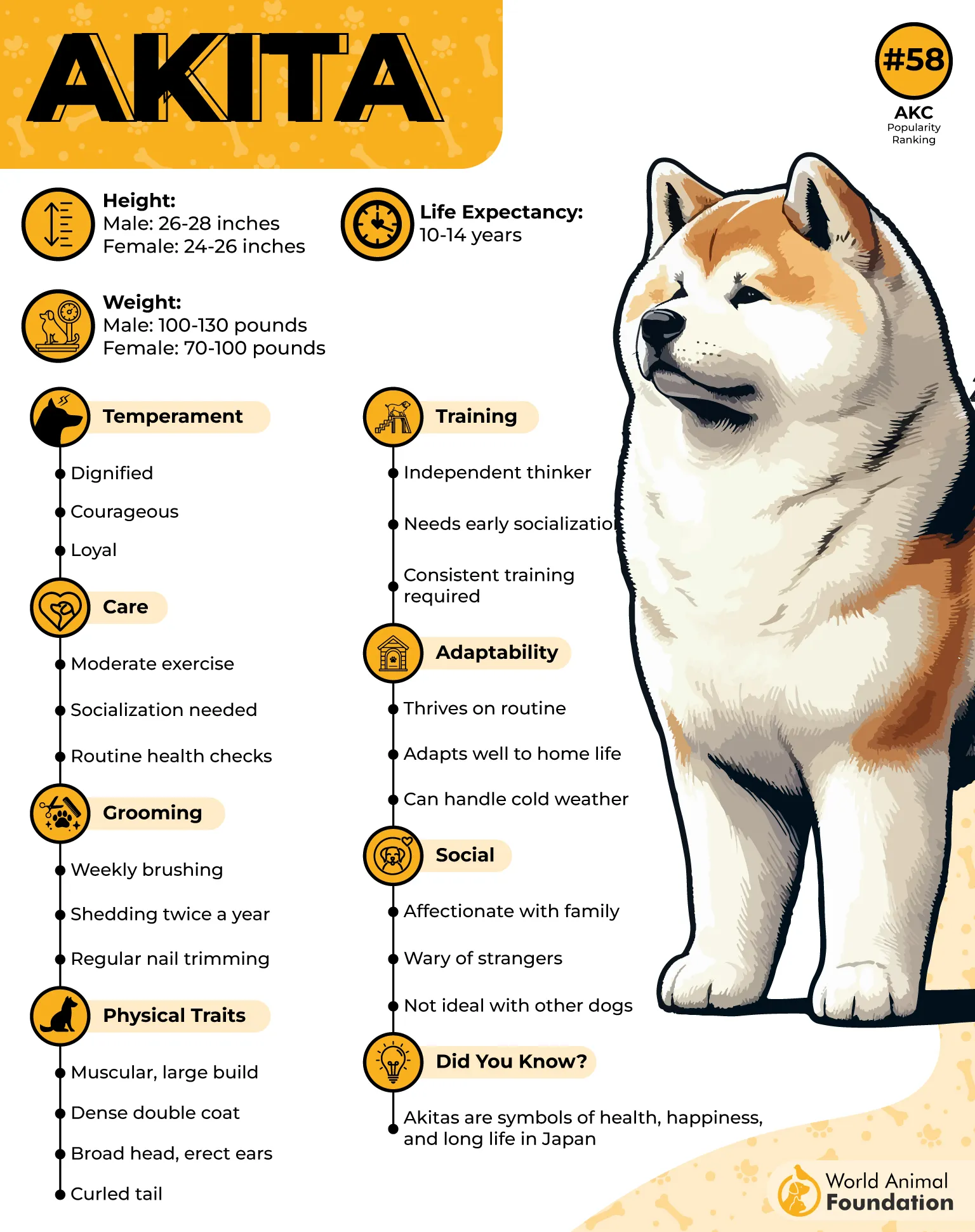
Despite their aloof nature, Akitas are incredibly intelligent. However, they can be difficult to train because of their independent mindset and natural instinct to make decisions for themselves.
Regular exercise and mental stimulation are essential to keep them happy and well-adjusted. Akitas do best in homes with large yards where they can have their space and time to themselves.
Fun Fact: The Akita breed gained worldwide fame when an Akita named Hachiko waited for his owner every day at a Tokyo train station for nearly 10 years after his owner’s death, demonstrating the incredible loyalty of this breed.
4. Jindo
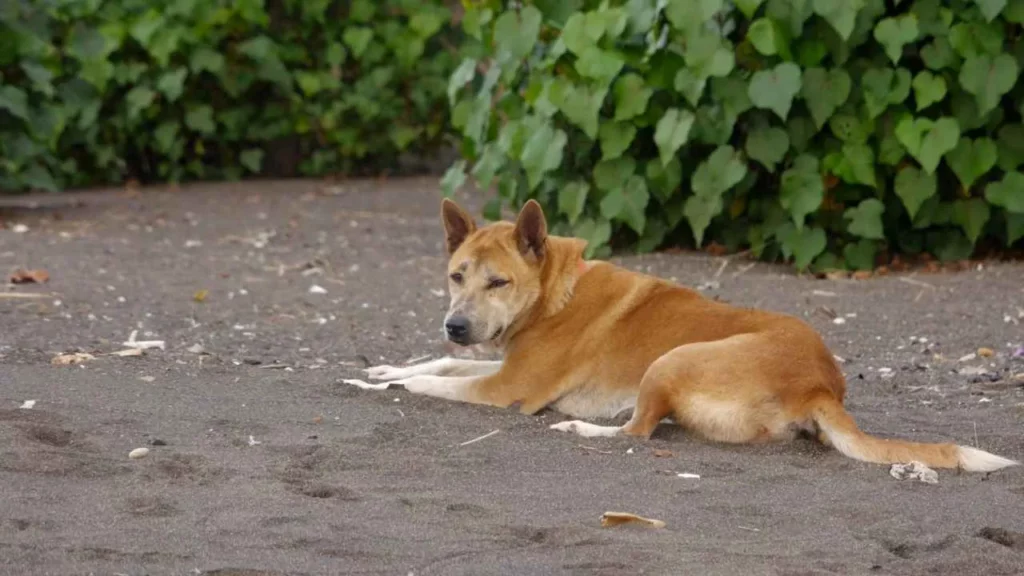
The Jindo is a medium-sized dog breed from Korea, known for its intelligence, independence, and aloofness. Often described as reserved, Jindos are loyal to their families but tend to be wary of strangers.
This breed is highly intelligent, which can sometimes make training challenging due to their independent nature. They are often more self-reliant than other dogs, displaying a “leave me be” attitude when they’re in a new environment or situation.
Jindos are very active dogs that require regular exercise to stay mentally and physically stimulated. Despite their reserved nature, they can be very affectionate with their close family members.
They are known to form strong bonds with their owners and will protect their family if necessary. However, they may not get along with other dogs and should be carefully introduced to new pets.
One of the Jindo’s most remarkable traits is its strong hunting instinct. Originally bred for hunting in Korea, Jindos are highly effective hunters and may chase small animals if not properly trained. Socialization is key to ensuring that a Jindo grows into a well-adjusted dog, as they can be aloof and standoffish without proper exposure to different environments and situations.
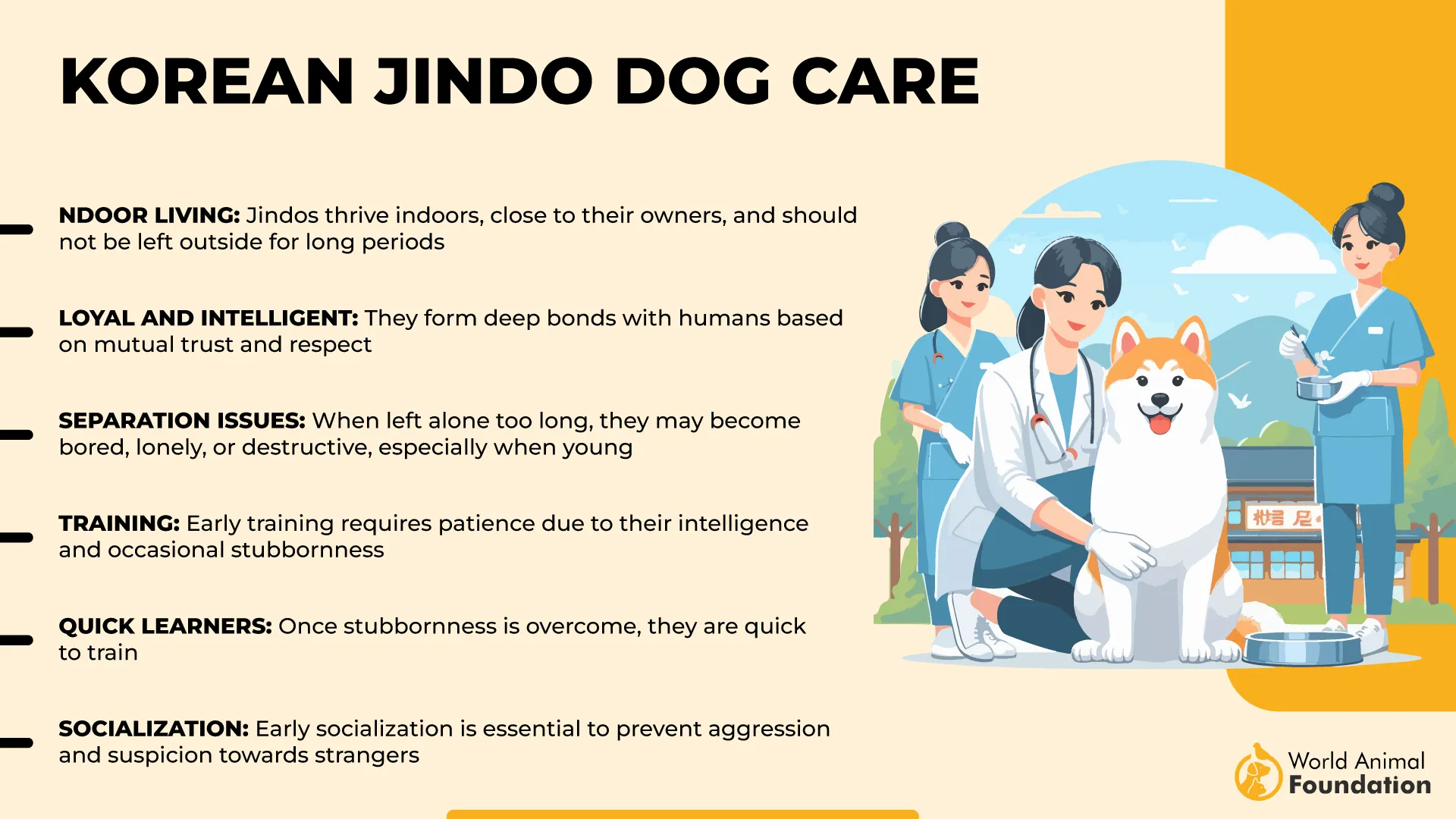
Fun Fact: Jindos are known for their loyalty and have been celebrated in Korean culture for their protective nature. They are considered a national treasure in Korea.
5. Afghan Hound
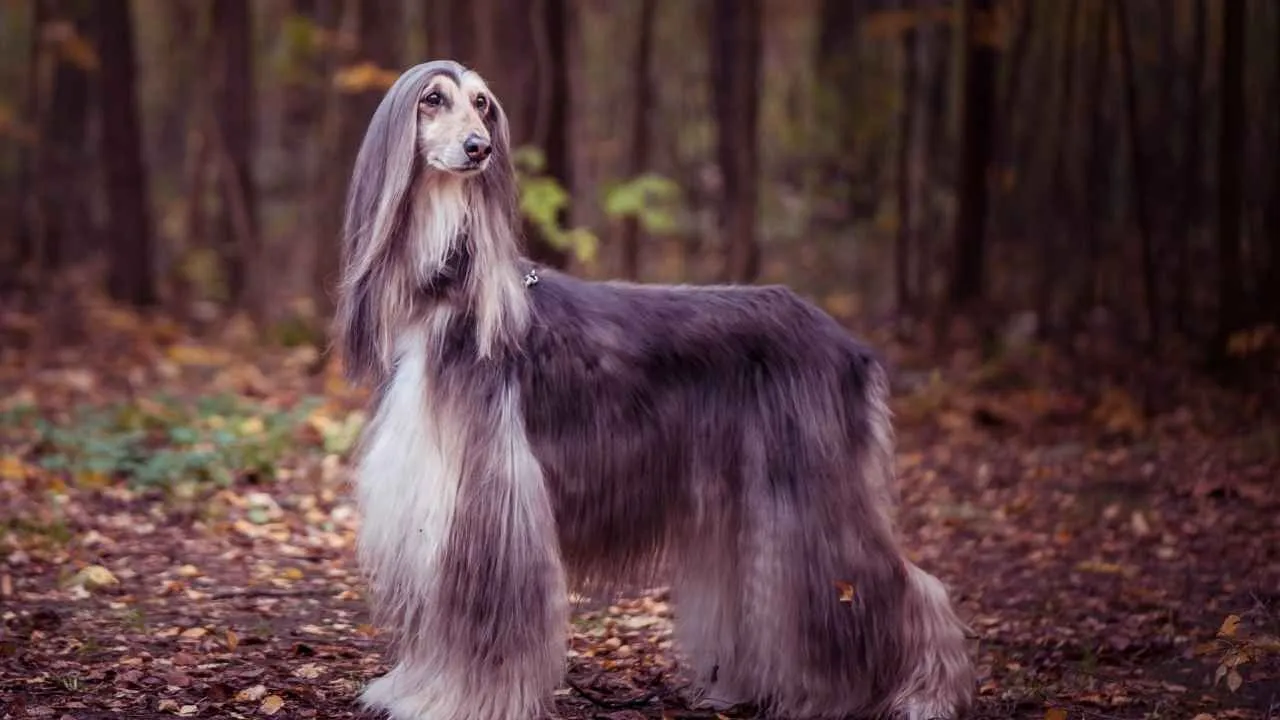
According to AKC, the Afghan Hound is an elegant and striking dog with a long, flowing coat and a distinct aloof nature. Known for their independent personality, Afghan Hounds tend to be reserved with strangers but are loving and loyal to their families.
They are often described as having a cat-like demeanor due to their selective affection and tendency to do their own thing. Afghan Hounds are best suited for owners who appreciate their independence and don’t expect constant attention or affection.
Afghan Hounds are intelligent dogs, but they are also quite independent and sometimes stubborn. This can make training a bit of a challenge. However, once they learn something, they are quite reliable.
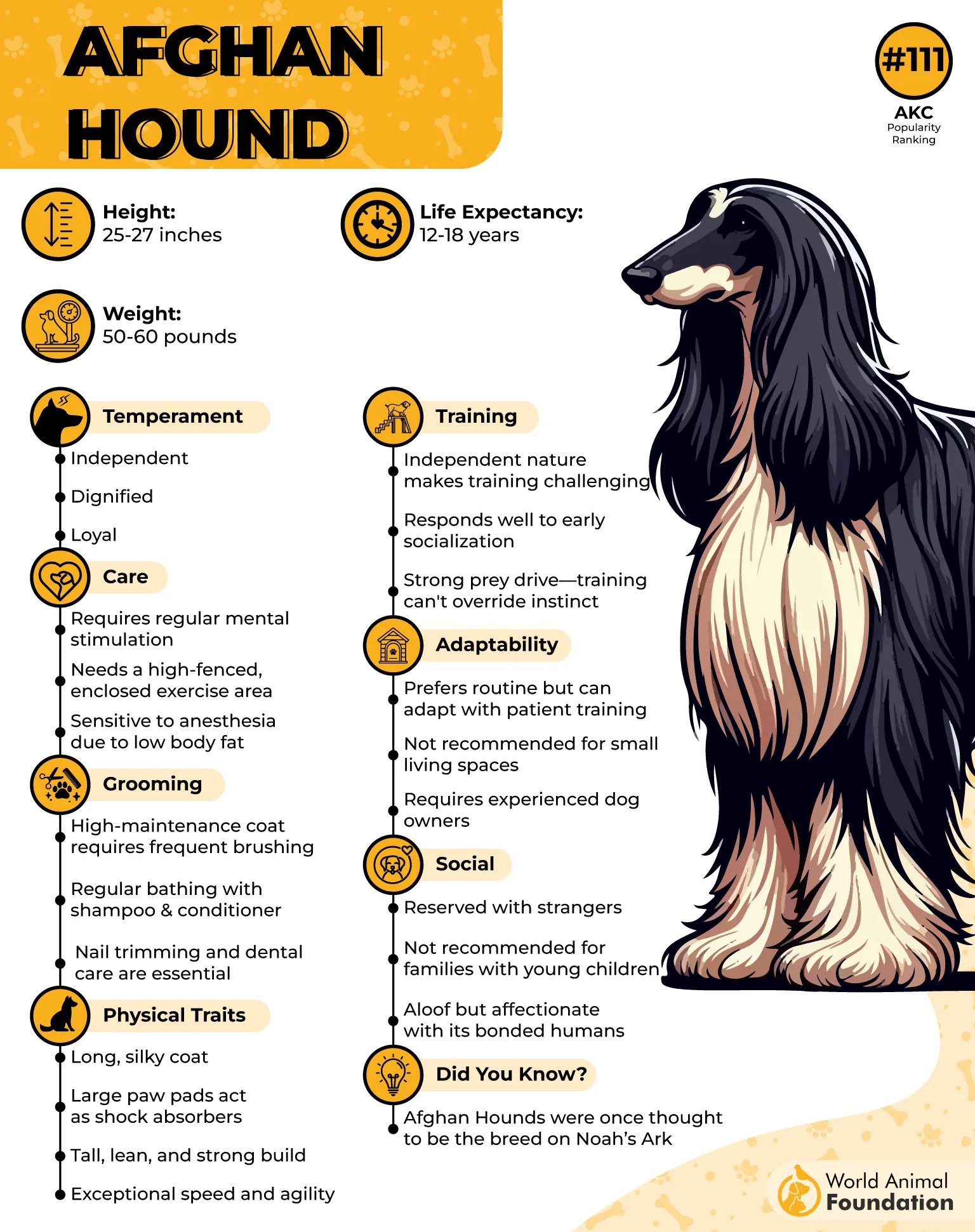
They thrive in homes where they are given plenty of space and the opportunity to express their independent nature. Regular grooming is required to maintain their beautiful coat, which is one of their most distinctive features.
These dogs are not particularly social with other dogs, but they tend to get along well with other pets when introduced properly. Afghan Hounds enjoy a good run in a safe, enclosed space, but they are not overly demanding when it comes to exercise. They are content with a moderate amount of activity and enjoy lounging indoors just as much as they enjoy being outdoors.
Fun Fact: Afghan Hounds are known for their extraordinary speed and agility, which made them excellent hunters in their native Afghanistan. They were originally bred to chase down game in the harsh mountainous terrain of the region.
6. Chinese Crested
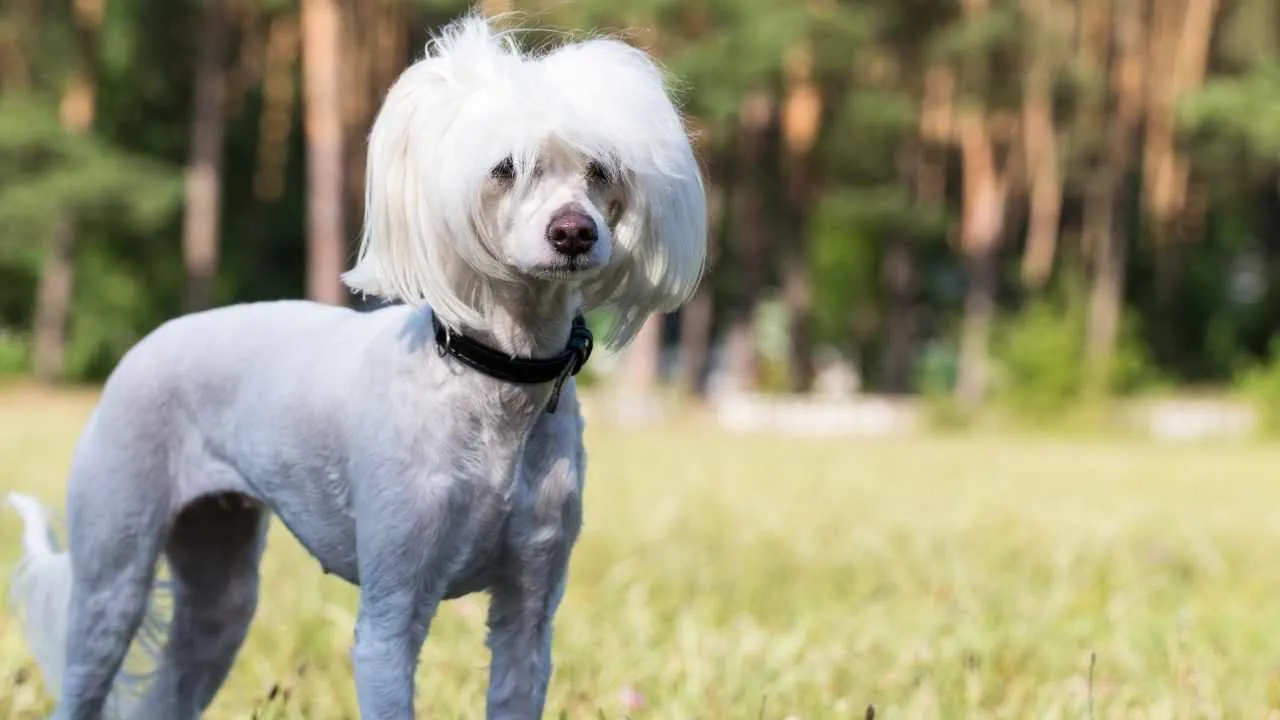
According to Purina, the Chinese Crested is a small and unique breed known for its hairless body and distinct appearance. While this breed may look quirky, it is highly affectionate with its family and typically reserved with strangers.
Chinese Cresteds are loyal and loving to their owners, but do not demand constant attention. Their independent personality makes them a great companion for people who appreciate a quieter, more low-maintenance dog.
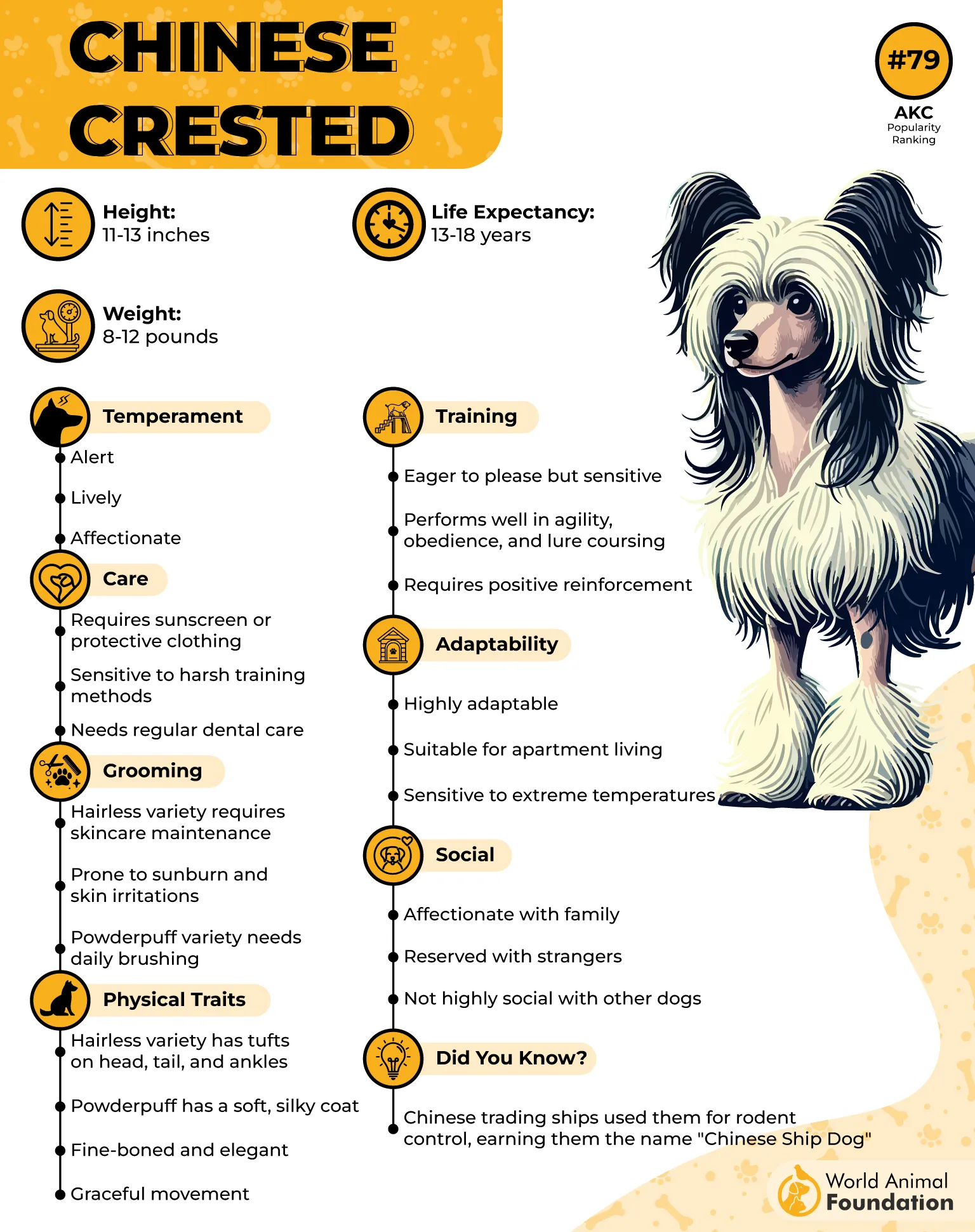
Despite their small size, Chinese Cresteds are quite spirited and can be very playful, though they often prefer the company of their immediate family. Their aloofness around strangers is a hallmark of their personality, and they tend to form strong bonds with the people they trust. They are not the best dogs for first-time owners, as they can be stubborn and require consistent training.
These dogs are generally healthy but need protection from the elements due to their hairless coat. They can be prone to skin issues and should be bathed and moisturized regularly. Chinese Cresteds thrive in homes where they can be treated as cherished family members, often curling up on laps or lounging on soft furniture.
Fun Fact: The Chinese Crested was once considered a royal dog in ancient China, often seen on the lap of Chinese emperors. Their playful yet reserved nature made them excellent companions for those who enjoyed their quiet, loyal temperament.
7. Greyhound
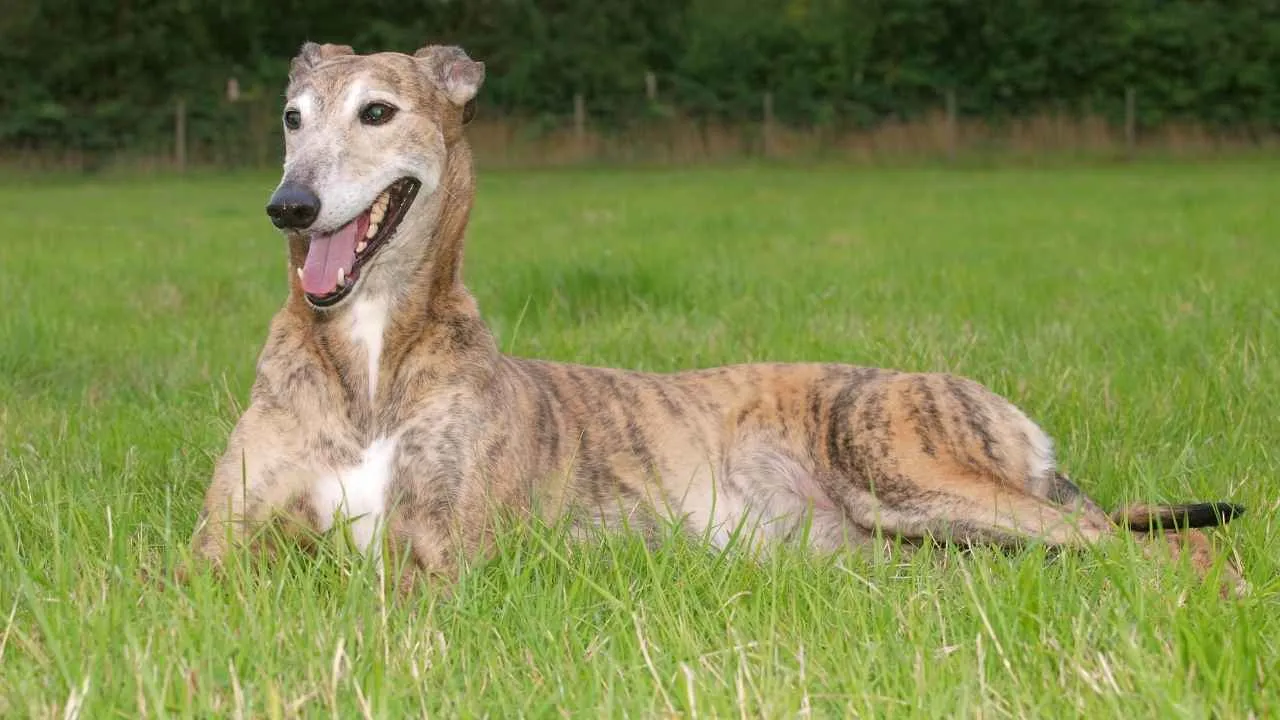
Greyhounds are an elegant and graceful breed known for their incredible speed and reserved demeanor. While they are renowned for their athleticism, they are often surprisingly calm and laid-back when at home, says PetMD.
Despite their history as racing dogs, they tend to be gentle and affectionate with their family, though they can be reserved with strangers. Their aloof nature is balanced by a deep loyalty to those they trust.
Greyhounds are typically quiet dogs with a gentle personality, preferring to relax indoors after an exercise session. Their independence means they don’t always seek constant companionship, but they are content in the company of their close family members.
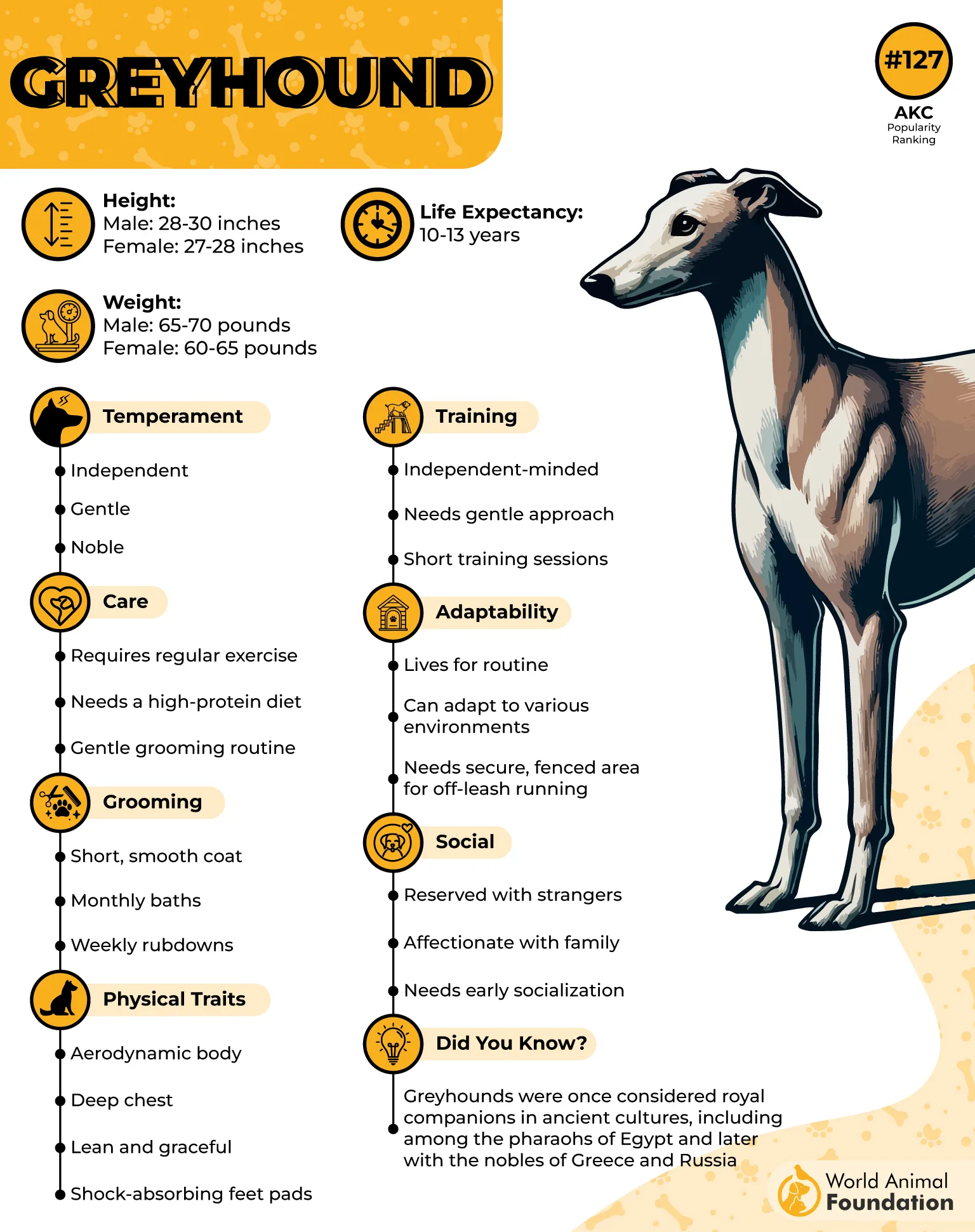
This breed can be somewhat aloof around unfamiliar faces but quickly warms up once they feel comfortable. Their independent nature also means that they can be left alone for moderate periods, provided they have a safe and comfortable environment.
Originally bred for hunting and racing, Greyhounds have a strong prey drive and can be difficult to train, especially if they are not properly socialized at a young age. While they are intelligent, their aloofness may make them appear less eager to please compared to other breeds.
Greyhounds do best in homes where they are given plenty of space to run, but they are often content as “couch potatoes” when indoors. Regular walks and a secure, fenced yard are essential for keeping them happy.
Fun Fact: Despite their reputation for speed, Greyhounds are surprisingly low-energy dogs indoors. They are content to spend much of the day lounging and napping after a good sprint, making them ideal for apartment living.
Conclusion
The reserved dog breeds offer a unique and rewarding experience for those who appreciate a more independent companion. These dogs tend to have strong personalities and are often highly intelligent, forming deep bonds with their family members. While they may not seek constant attention, their fiercely loyal and reserved nature allows them to thrive in environments where they are given their own space.
Many of these dogs, including the Tibetan Mastiff and Chow Chow, are known for their aloof demeanor, making them excellent choices for individuals who value a calm, quiet, and loyal companion. Their independent nature is often coupled with a strong protective instinct, as seen in breeds like the German Shepherd and Great Pyrenees, who form strong bonds with their families and stand guard over them. These breeds may not always be the most affectionate, but their devotion to their loved ones is undeniable.
If you’re ready for a dog that doesn’t demand constant attention and prefers a little space, these most independent dog breeds can provide the perfect balance of companionship and personal space. From the calm and quiet Greyhound to the fiercely loyal Basset Hound, these dogs are ideal for those who appreciate their reserved nature and strong, independent spirit.


